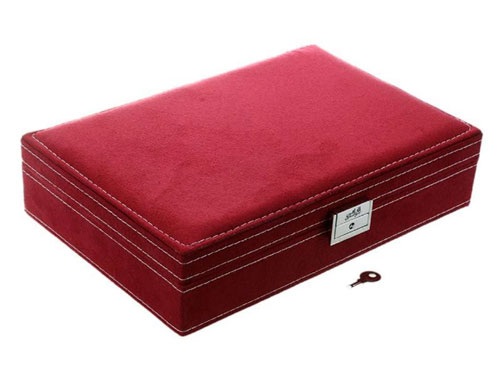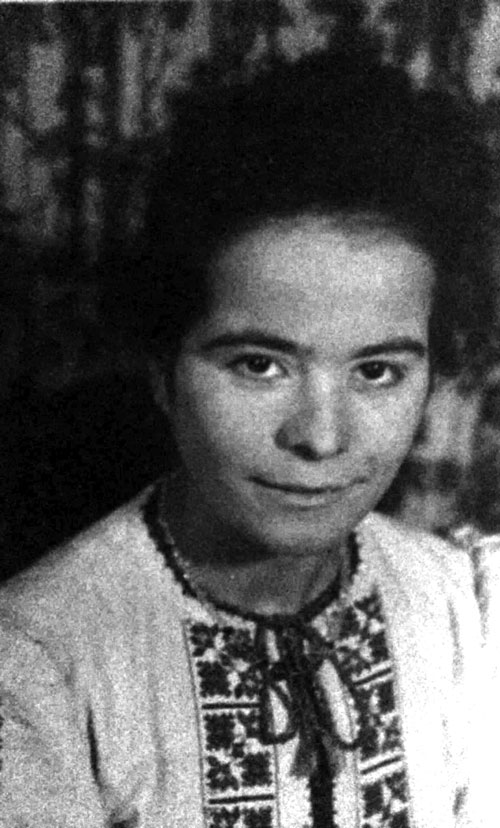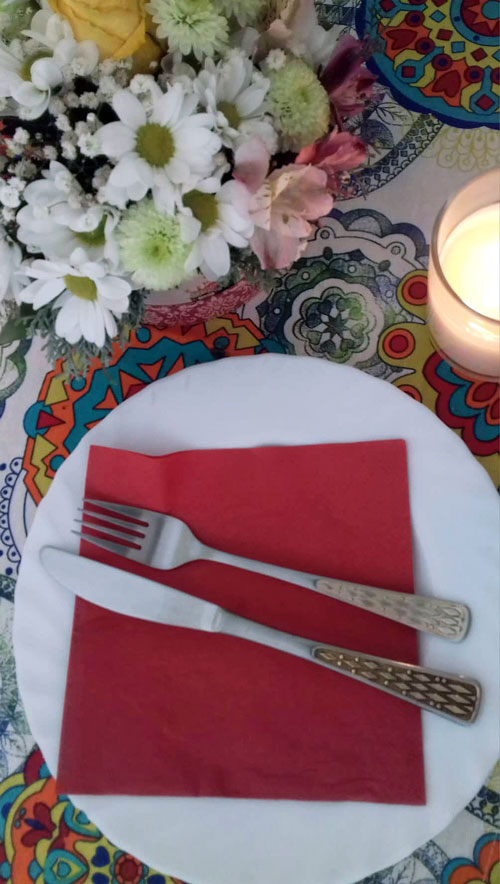Narrating a personal story
Apart from folk and written fairy tales we can, of course, relate and narrate personal stories. If not publicly, then amongst family and friends. I will tell one such story now.
I’ve named it ‘The Red Velvet Box’

The story that I want to share with you requires us to go back to a time which seems long ago, we’re going back to the time of the Second World War. In this time, a dark time in our collective history, in a labour camp in Berlin, my grandmother and grandfather from my father’s side met. Both of them from the same region in Croatia, one night and one day they were seized and separated from their families, homes and friends. They were abducted from everything they knew. They were transported by trains to various locations. My grandfather was transported to Auschwitz, whilst my grandmother, after losing almost all of her family, ended up in Berlin in a labour camp – in the female unit.
The labour camp was a kind of a concentration camp in which the detainees were forced into forced labour. So, my granny, at that time a young girl named Savka, was in a labour camp in Berlin.

My grandfather, at that time a young man, fled from Auschwitz. What kind of feat that was we only know from the basic information about that camp from which only a very few people came out alive.
As he was young and also intelligent, after his escape, he found a small house in the forest where a woman gave him civilian clothes and he changed into them. Then he looked for the railway and found it. He walked down the track and came to a station. He sat on a train and travelled directly to Berlin. In Berlin he was arrested and sent to the labour camp – the male unit.
Now he and my granny were close and they quickly got to know each other.
I found my granny’s story particularly fascinating because she spoke about what it was like for her there without any hatred or resistance or judgement. She spoke about the leader of her part of the camp. She told me about this leader, a guard, a German woman, of course, who was the first person to teach her about how to pluck her eyebrows. She spoke about what kind of food they were given and how despite the work obligation and imprisonment, they used to laugh and have fun – to live and get through it. And one day during some free time she and my grandfather met. They waited until the end of the war and together they returned to my grandfather’s birthplace, Okučani in Slavonia. My granny had nothing nor anyone to go back to so in Okučani they began their post-war life from scratch.
Since my grandfather was a businessman he travelled around Croatia and sometimes even abroad, and during one trip to Italy he bought my granny a gold-inlaid cutlery set which was in a red velvet box. They had three children during this time, and one of them, the first child born in 1946, was my father.
Due to the nature of my grandfather’s work they moved to Ogulin. In Ogulin my father fell in love with my mother and the whole family settled in Ogulin. In the 1980’s my grandfather finished his working life and returned to Okučani with my granny.
During that time we went to visit them for a few days every summer.
During one of these visits, my granny took me to her room. She opened the door of an old oak wardrobe and from it took out a red velvet box, opened it and showed me the gold-inlaid cutlery set. This gesture has remained in my memory as a powerful and indelible image. In the depth of her room, from the depth of her wardrobe, with her old hands, she took out the red velvet box. The colour and shape of the box, the atmosphere of the semi-dark room and her quiet voice: “When you grow up, and before I die, you will get half, and half will go to Nataša”. Nataša is my cousin, her other female grandchild. I touched that quite big velvet box with my hand and not thinking about what was inside because the colour, the atmosphere and softness of the box which emerged from the wardrobe in that room was the most impressive image that I remembered. So impressive that I didn’t even care about what was in the box.
At the beginning of the 1990’s – war again. And our connection with granny was broken. We know that she escaped, grandfather had died and she was left alone, and when it was necessary to go she packed up and fled because she knew what happens during wartime. She remembered the red box and the cutlery. She put the cutlery in a bag and hid the bag in the chimney. After several years in a refugee camp in Germany (again), the conditions for her return were safe and she went back to her home in Okučani.
When we saw her for the first time after her return, she took out the cutlery from the chimney. She gave me six spoons, six forks, six knives, six dessert spoons, six dessert forks, one small ladle for sauce and one large spoon for sauce. There was no red velvet box. But the hand which showed it to me, the hand which hid the cutlery in the chimney, and then returned and gave it to me, has a living place in my life and the life of my children who have heard this story. So – pass on stories, tell them, spread them and don’t let these kinds of events be forgotten. They are life and living history.
If you don’t know where you’re from, how do you know where you’re going?

Translated by Martin Mayhew